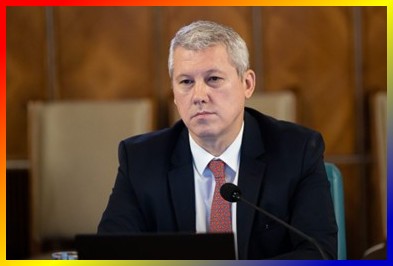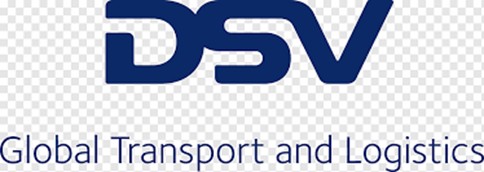
We as the board of Dutch Romanian Network, VNO NCW and the Netherlands Romanian Chamber of Commerce published a statement back in 2012 that Romania. The technical criteria for joining the Schengen area were already met in 2011, which was confirmed by the European Commission. However after that, the so-called and otherwise focused Cooperative and Verification Mechanism CVM) was improperly linked to it. The position of a number of countries including the Netherlands on Romania’s accession to Schengen was purely political in nature. As is well known, the European Council(heads of government of member states and their foreign ministers) still uses the now infamous veto or unanimity principle. It is out of date and adversely affects European clout. After all, nowadays it is impossible to explain that the European Commission recently invited Romania to join Schengen and yet a country would vote against (again for political reasons). It seems very undemocratic to us if a minority is going to rule the majority.
l’histoire se répète?
 Romanian media recently reported(based on European sources)that Dutch Foreign Minister Wopke Hoekstra has expressed reservations about Romanian accession to Schengen, ignoring the countries Germany and France who do support it.
Romanian media recently reported(based on European sources)that Dutch Foreign Minister Wopke Hoekstra has expressed reservations about Romanian accession to Schengen, ignoring the countries Germany and France who do support it.
Because despite the fact that well-regarded Romanian Justice Minister Catalin Predoiu recently fulfilled the final conditions of the CVM, it cannot be true that Romania will again be put on hold without sound justification.
Moreover, this minister recently reported that all laws in the important field of judicial reform have been approved by the Romanian government and the entry into force will soon follow.
An entrepreneur talks about joining Schengen
According to DSV Road, the third largest global provider of transport and logistics services in Europe. The company estimates that joining Schengen will lead to an average increase in business of 20%.
The beneficial effects of Romania’s accession to the Schengen area will be felt immediately on the local transport and logistics market, DSV Road company executives believe. Thus, carriers’ transportation capacity will increase significantly once the borders are  lifted. Fuel costs will also decrease, as the waiting time for trucks at the border, currently between 24 and 72 hours, will disappear, especially at the border crossings to Bulgaria (Calafat-Vidin and Giurgiu -Russia), but also towards Hungary .
lifted. Fuel costs will also decrease, as the waiting time for trucks at the border, currently between 24 and 72 hours, will disappear, especially at the border crossings to Bulgaria (Calafat-Vidin and Giurgiu -Russia), but also towards Hungary .
“Romania’s presence in the Schengen area will accelerate the development of the local economy. Thus, waiting times at the border will be significantly reduced, which has a cascading effect on the entire Romanian economy, which we all feel, both companies and individuals. Currently, exceedances of daily driving times recorded by drivers, higher fuel consumption during waiting times and delays in delivering goods to customers both penalize transporters and create problems in supply or in the execution of some production processes, as well as rising costs for end customers. Eliminating waiting times at the border with Hungary will also reduce transit times for all our groupage lines to Western Europe by at least 24 hours,” said Sergiu Iordache, Managing Director at DSV Road.

At the same time, Romania’s accession to the Schengen zone will increase external and internal competitiveness, optimize transport costs and increase local consumption. Other important effects of presence in Schengen include increased efficiency of truck use, as well as increased driver availability. In Europe, the shortage of drivers increased by more than 40% between 2020 and 2021, a study by the International Road Transport Union (IRU) shows, and with the removal of borders, an improvement of up to 10% will be achieved .
Lifting the borders will also make the European Union’s fleet more fluid. Currently there are blockades at the border, also because of the EU mobility package regulation, which requires drivers to return to their countries periodically, every few weeks.
“Of course, the effects of joining Schengen will also be felt in the DSV Road business. We estimate a 20% increase in turnover by streamlining transport costs and increasing the number of trips. Since DSV Road Romania manages large distribution contracts in Bulgaria, the biggest impact will be the reduction of time at the border. It is not an arbitrary example because the presence in Schengen will affect short trips, where the share of waiting time in total travel time is higher. We look forward to Romania’s entry into the Schengen area, a beneficial change for every carrier and company, which will have a significant impact on the local economy,” explains Mihai Teodorescu, Sergiu Iordache, Managing Director at DSV Road.
Also, the free movement of citizens in Schengen member states will increase the potential for citizens currently based in Europe to return to Romania, DSV Road representatives believe, seeking to attract team specialists who will settle in the country.
It is also essential that, due to the lack of borders and shorter transportation time, the amount of carbon emissions is significantly reduced, thus protecting the environment. Therefore, DSV Road has made significant strides in reducing pollution by offering customers the opportunity to choose sustainable transportation services.
According to the State Department, Romania has met the technical criteria to enter the Schengen area for more than 10 years, and by joining it will have one of the longest borders. In August 2022, Germany claimed that Romania meets all the requirements and will support our country to become a full member of the Schengen zone.
If we are all talking about the future of Europe, and if all the criteria are met, all countries have the same obligations and the same opportunities. So Romania’s place is in the Schengen area.
At the time of writing, the Dutch government has not yet taken a position, but given past experience, we believe a proactive stance on our part is warranted.
